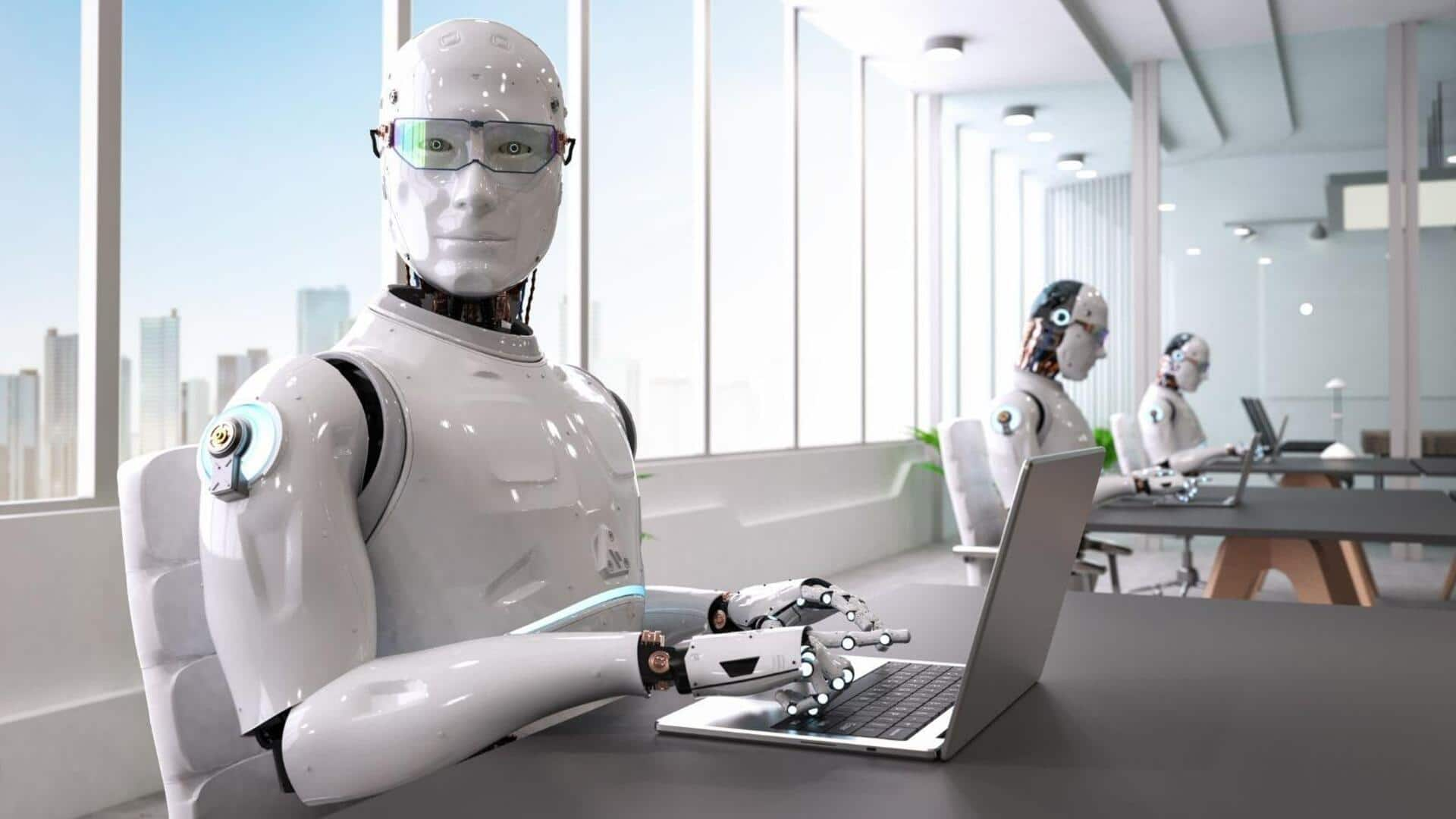
By 2030, AI will replace humans in these key tasks
What's the story
Mary Meeker, a renowned tech analyst and former Wall Street securities analyst, has released her latest report on artificial intelligence (AI), titled "Trends - Artificial Intelligence." The 340-page document is filled with predictions and insightful observations about the future of AI. One key takeaway from the report is that by 2030, AI could take over several human tasks. These aren't just predictions but specific areas where AI could replace human involvement in the near future.
Knowledge interface
Primary knowledge interface
The report predicts that AI will replace humans in answering questions by 2030. It will be the go-to interface for information, providing quick and contextual answers. Instead of searching on Google and going through multiple links, users can directly ask their queries to an AI system. This way, they will get accurate answers faster than ever before.
Writing assistance
Handling low-stakes writing tasks
The report also predicts that by 2030, AI will take over most low-stakes writing tasks. This includes everything from emails to reports and content production. Humans will mainly be involved in reviewing, tweaking, or approving the content generated by AI systems. The trend is already visible with large language models (LLMs) producing emails and summaries at scale today.
Coding revolution
AI to code apps and build websites
The report highlights how platforms like GitHub Copilot and ChatGPT are converting natural language into deployable code. By 2030, this trend will be commonplace. You could describe a product idea in simple terms, and the AI system would create a live prototype for you. This feature has the potential to transform how apps are developed and websites are built.
Administrative tasks
Taking over administrative roles
The report predicts that AI will take over administrative roles by 2030. This includes managing meeting notes, writing follow-up content, and sorting emails in your inbox. AI systems would instantly summarize calls, generate recaps, and even draft your next email. They could also act as inbox gatekeepers, meaning they will read, categorize, and respond to emails based on your preferences and past behavior.
Information
Simplifying complex information
The report also predicts that AI will be your first-line interpreter for everything from legal documents to medical results. This "contextual AI" will simplify complex information into plain speech. Plus, it'll automatically personalize content and services across various sectors, including news, health, education, and finance.
Coaching and navigation
AI to coach and navigate in real time
The report predicts a surge in AI-based coaching tools for fitness, learning, or mental health by 2030. These systems will provide consistent nudges, routines, and feedback, something humans often struggle with. Also, AI's contextual understanding of location, urgency, and even mood will power smarter maps and decision engines. This is already evident in transportation and logistics today.
Information
Interacting like a human
The report also envisions a future where AI chats will remember your tone, preferences, and past interactions to carry on conversations more like a friend or colleague, rather than starting from scratch each time.